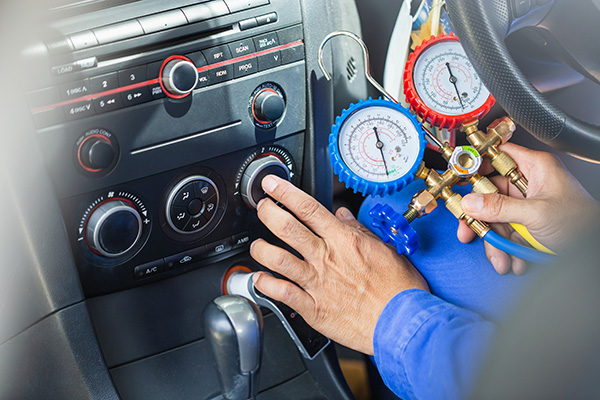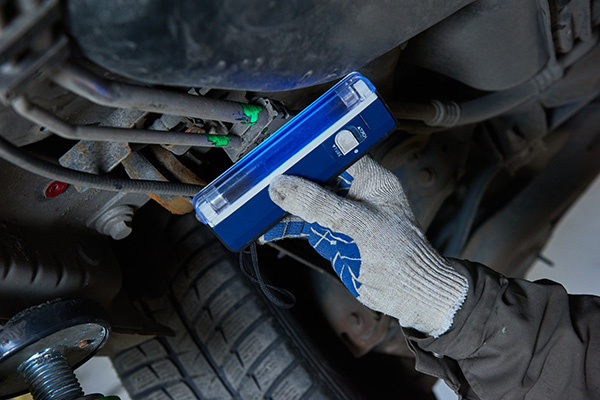Posted on 9/11/2025

Subarus are known for their reliability and all-weather performance, but if you’ve noticed your vehicle going through oil faster than expected, it’s worth paying attention. While some oil consumption is normal in any engine, excessive burning can signal developing problems. Ignoring it can lead to bigger issues, including engine damage or costly repairs. We’ve seen many Subaru owners come in with questions about oil use. Understanding the possible causes and solutions can save you time, money, and frustration in the long run. Why Subarus Are More Prone to Oil Burning Subarus are unique in their engineering, especially when it comes to their boxer engine design. Unlike traditional inline or V-shaped engines, a boxer engine has horizontally opposed cylinders. This design offers great stability and a lower center of gravity, but it also means oil tends to settle differently inside the engine. Over time, this can lead to increased oil consumption ... read more
Posted on 8/29/2025

Nissans are popular for their comfort, performance, and efficiency, but like any car, they come with their own set of recurring issues. Some problems might seem small at first, but if left alone, they can quickly turn into expensive and inconvenient repairs. Whether you're driving a Sentra, Altima, Rogue, or Pathfinder, it’s important to address these issues early before they impact your safety or your budget. Here are five common Nissan problems that tend to get worse over time if not handled promptly. 1. CVT Transmission Troubles Many Nissan models, especially those built in the last decade, use a Continuously Variable Transmission (CVT). While CVTs are designed to provide smooth and efficient acceleration, they’ve been a common source of complaints among Nissan owners. Early signs of CVT trouble include hesitation when accelerating, jerky movements during gear changes, whining noises, or even overheating after long drives. If ignored, CVT issues ... read more
Posted on 8/15/2025

Lexus vehicles are known for their smooth performance, luxurious feel, and long-term reliability. But even with that reputation, consistent maintenance and specialized care are necessary to keep your Lexus running at its best. Not all vehicles are built the same, and Lexus models benefit from specific diagnostic tools, service schedules, and trained technicians who understand their engineering. If you're driving a Lexus and want to protect your investment, choosing an auto shop that knows the brand inside and out makes all the difference. What Makes Lexus Maintenance Different Lexus is Toyota’s luxury division, which means it shares some components and reliability traits with its parent brand, but it’s still a different experience under the hood. Lexus models often come equipped with advanced electronic systems, hybrid drivetrains, and high-performance engines that require a deeper level of service knowledge. Timing is especially important. Followin ... read more
Posted on 7/25/2025

On a hot day, there’s nothing more refreshing than stepping into a car with a properly working air conditioning system. When your A/C stops blowing cold air, though, it can quickly turn every drive into an uncomfortable experience. Many drivers hear terms like "A/C recharge" and "A/C repair" but aren’t quite sure what they mean or which one they need. Understanding the difference between these services can help you make the best decision for your vehicle and keep you cool on the road. How Your Car’s A/C System Works To understand why you might need an A/C recharge or repair, it helps to know how the system functions. Your car’s air conditioning system relies on a special refrigerant to absorb heat from the cabin and release it outside. This process depends on several components working together, including the compressor, condenser, evaporator, expansion valve, and various hoses and seals. When everything is working as it s ... read more
Posted on 7/11/2025

A working air conditioning system is a must-have, especially during warm weather. When your car's A/C isn’t blowing cold air like it should, one of the most common culprits is a refrigerant leak. While an A/C leak might seem like a minor inconvenience at first, it can lead to bigger problems if not addressed. Understanding what causes these leaks and how they are fixed can help you stay cool and avoid unexpected repairs. How Your Car’s A/C System Works Your vehicle’s air conditioning system relies on refrigerant to absorb and release heat, cooling the air before it enters the cabin. This refrigerant circulates through various components, including the compressor, condenser, evaporator, and hoses. If any part of the system develops a leak, refrigerant escapes, and the system loses its ability to cool effectively. Common Causes of A/C Leaks Several factors can lead to refrigerant leaks in your car's A/C system. Some of the m ... read more